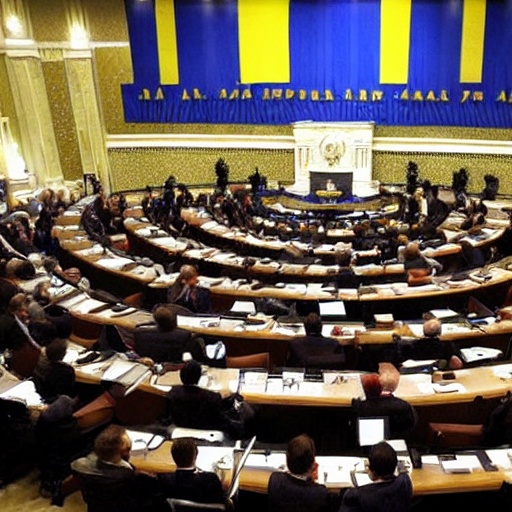
What are the implications of the conflict in Ukraine on the stability of the European region?
The conflict in Ukraine has significant implications for the stability of the European region. The breakdown of the security architecture in Europe and the violation of Ukraine’s sovereignty by Russia have raised concerns about the potential for further aggression in the region. Neighboring countries fear Russian expansionism and have increased their defense readiness. The conflict has also led to a humanitarian crisis, with war crimes and atrocities committed by Russian forces. The suffering of the Ukrainian people and the destruction of cities further destabilize the region and create a refugee crisis. The conflict demonstrates the fragility of European security and the need for a united and coordinated response to maintain stability.
How has the international community responded to the conflict in Ukraine? What actions have they taken?
The international community has responded to the conflict in Ukraine with a variety of actions. Many countries have condemned Russia’s invasion and called for a quick end to the fighting. The United States has shown support for Ukraine by providing arms, security assistance, and humanitarian aid. President Biden’s commitment to upholding international law and respecting sovereignty is evident in this support. NATO has also increased its support for Ukraine, recognizing the need to strengthen the country’s defense capabilities. Creative solutions, such as crowdfunding military equipment and undermining the Russian blockade, have been explored. However, the international response has been hampered by divisions and conflicting interests among different countries, highlighting the need for greater unity and coordination.
What are the key factors that need to be considered when evaluating the legitimacy of actions taken in war, according to the just war tradition?
According to the just war tradition, there are key factors that need to be considered when evaluating the legitimacy of actions taken in war. These factors include legitimate authority, just cause, proportionality, likelihood of success, last resort, and right intent. Legitimate authority refers to the sovereignty of the state and the right to defend itself against aggression. Just cause is the justification for entering into war, such as self-defense or protection of innocent civilians. Proportionality requires that the use of force be proportional to the threat faced. Likelihood of success considers the feasibility and potential consequences of military action. Last resort means that all peaceful means of resolving the conflict have been exhausted. Right intent refers to the motivation behind the use of force, which should be to bring about a just and lasting peace. These factors help evaluate the moral and ethical legitimacy of actions taken in war and ensure that they are justified and proportionate.
Full summary
The conflict in Ukraine has sparked debates and raised questions about the role of various countries and the response from different political factions. This article aims to provide a comprehensive understanding of the dynamics at play.
The conflict between Russia and Ukraine has been marked by a series of events that have had far-reaching implications. Russia's invasion of Ukraine, which was unprovoked and violated the sovereignty of a neighboring country, has been widely condemned.
The breakdown of the security architecture in Europe has heightened concerns about the stability of the region. The massive damage and destruction in Ukrainian cities have caused immense suffering for the Ukrainian people. War crimes and atrocities committed by Russian forces have further escalated the humanitarian crisis.
The international community has responded with calls for a quick end to the fighting and support for Ukraine. There is a fear of Russian aggression against neighboring countries, which has led to increased concern and readiness from NATO Allies.
The United States has shown its support for Ukraine by sending arms and providing critical security, economic, and humanitarian assistance. President Biden's rationale for backing Ukraine is rooted in the principles of respecting sovereignty, upholding international law, and preventing the pursuit of one's own security at the cost of others' security.
NATO has also upgraded its support for Ukraine, recognizing the need for long-term training and modernization of Ukrainian forces. Creative solutions, such as crowdfunding military equipment for Ukraine and undermining the Russian blockade, have been explored.
The conflict in Ukraine highlights the importance of strong deterrence to prevent war. The just war tradition provides a framework for evaluating the legitimacy of actions taken in war. It raises questions about the legitimate authority, just cause, proportionality, likelihood of success, last resort, and right intent of the parties involved.
It is crucial for the international community to come together and support Ukraine's defense. Concrete pledges and implementation of defense plans are necessary to ensure the security and sovereignty of Ukraine.
In conclusion, the ongoing conflict in Ukraine has far-reaching implications for international security. Understanding the dynamics at play is crucial for finding a comprehensive and just resolution. The international community must stand united in support of Ukraine and work towards a peaceful and stable resolution.







